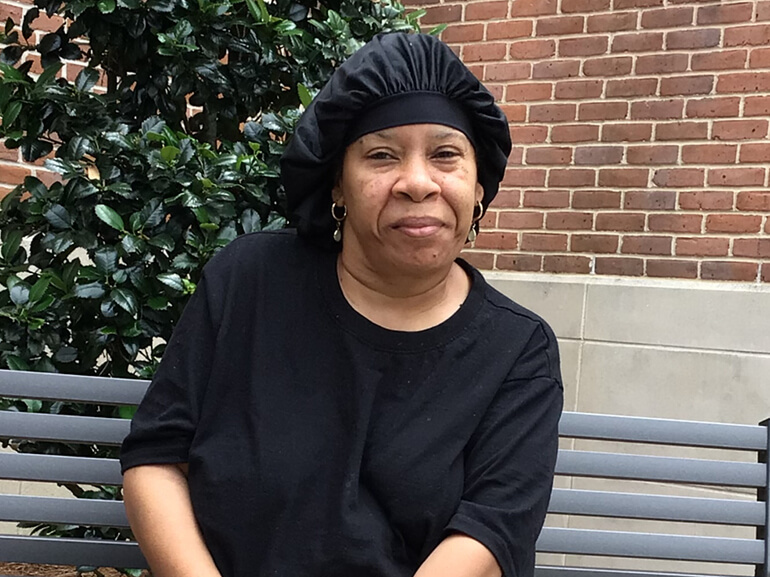Lawanda's Story

One evening, Lawanda Dawson's life took an unexpected turn when pain and numbness engulfed her right foot and hand. A call to her family led to a distressing situation as her blood pressure soared to alarming levels.
Rushed to Slidell Memorial and subsequently transferred to Ochsner Main Campus Hospital, it was determined that the 46-year-old Lawanda had suffered a debilitating bleeding stroke. She lost her ability to communicate and swallow, requiring ventilator support for survival. Recovering from a stroke may be one of the greatest challenges a person will ever face.
After weeks of intensive care and then stabilization, it was clear Lawanda required specialized rehabilitative care to regain her lost strength and independence. Lawanda's medical team recommended the next critical step in her rehabilitation journey - Northshore Rehabilitation Hospital.
Upon arrival at Northshore, Lawanda faced daunting challenges. She was dependent on others for her basic self-care, unable to walk and her speech remained unintelligible. Determined to reclaim her life, Lawanda set a goal for herself - to walk and speak once more. With determination and the guidance of her physician-led care team, she embraced her journey of healing.
Her physical therapists focused on strengthening Lawanda's right leg, incorporating exercises, therabands and a bicycle machine. Balance and control of her right leg while standing and walking were addressed using parallel bars and electrical stimulation to activate her nerves to move her muscles during therapy. Progressively, Lawanda advanced to taking steps with a handrail and utilizing a walker for support.
In occupational therapy, Lawanda worked diligently to strengthen her right hand, using therabands, electrical stimulation and an arm bike. Fine motor skills were honed through therapeutic exercises, including the use of therapy putty and games tailored for stroke recovery. Self-care skills such as toileting, bathing and dressing were relearned with specialized adaptive tools such as a long-handled brush for bathing and sock aid for helping her dress. By the time of discharge, Lawanda had regained much of her self-care independence.
In speech therapy, Lawanda diligently worked on regaining her swallowing and speaking abilities. Initially reliant on a feeding tube, she also had expressive aphasia and was unable to speak or comprehend language. Daily sessions with speech therapists involved speaking exercises and swallowing practice. Indeed, by the time of her discharge, Lawanda could hold conversations and consume regular foods and liquids.
Lawanda's family was by her side every step of the way, and after 28 days she was ready to return home. She looked forward to reuniting with her family, including nieces and nephews, and getting back to her normal routine. She is even considering going back to work at Slidell Memorial Hospital as a housekeeper and plans to continue her recovery journey with outpatient therapy.
Reflecting on her time at Northshore Rehabilitation Hospital, Lawanda expressed her gratitude, saying, "I loved it here—everyone has treated me very well." She also shared a piece of wisdom for others facing similar challenges: "I learned you have to depend on people and allow others to help you. I also learned to have patience with myself until I get stronger."